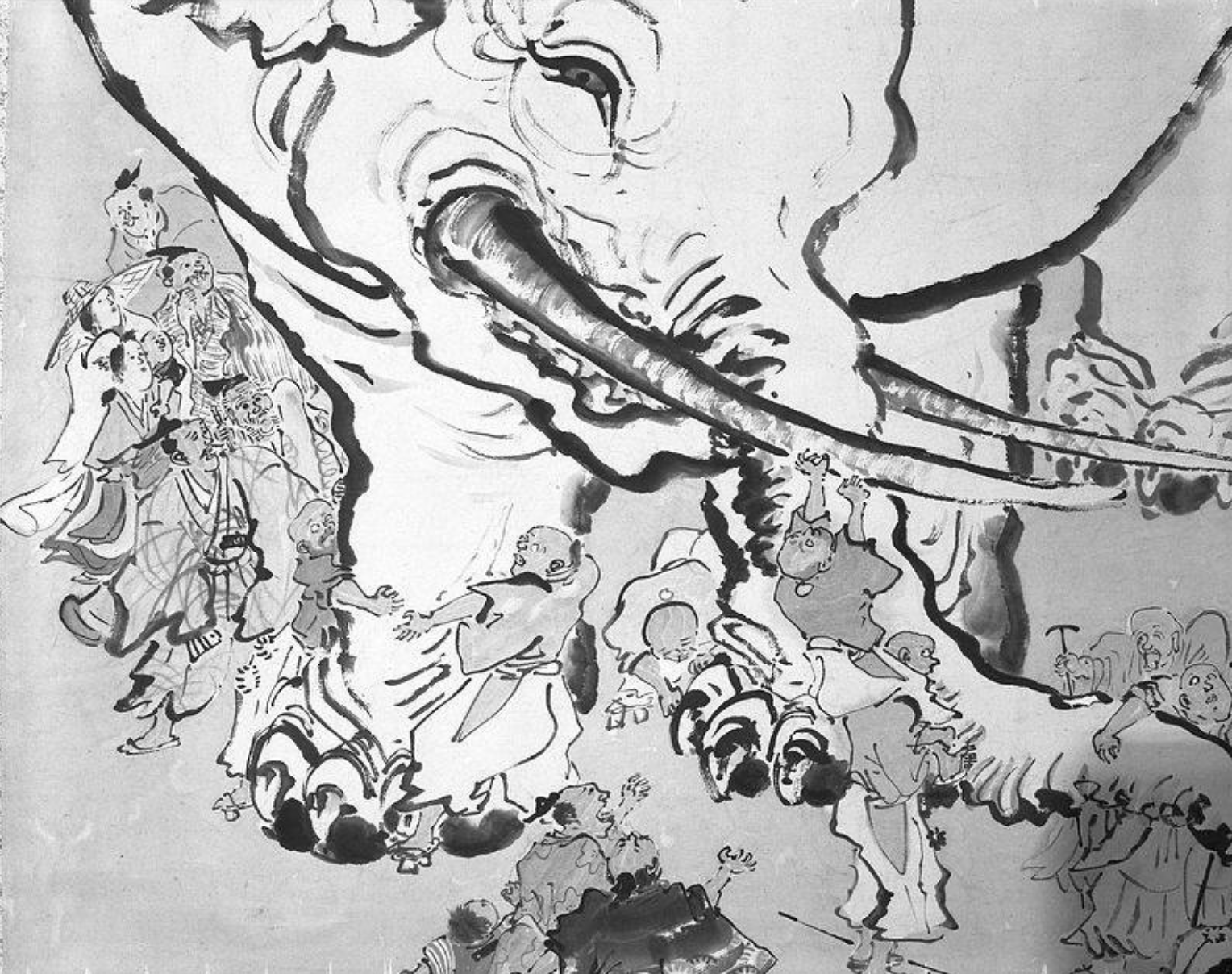This essay (serialized here across 24 separate posts) uses words and numbers to discuss the uses of words and numbers — particularly examining evaluations of university degrees that employ statistical data to substantiate competing claims. Statistical analyses are crudely introduced as the mode du jour of popular logic, but any ratiocinative technique could likely be inserted in this re-fillable space and applied to create and defend categories of meaning with or without quantitative support. Questions posed across the series include: Is the data informing or affirming what we believe? What are the implications of granting this approach broader authority? The author, Melanie Williams, graduated from UA in 2006, with a B.A. in Anthropology and Religious Studies.
Maybe another Bill James can offer a non-definitive answer, allowing us to move on to the next question:
“When one views the world with no definite theological bias one way or the other, one sees that order and disorder, as we now recognize them, are purely human inventions. We are interested in certain types of arrangement, useful, aesthetic, or moral, – so interested that whenever we find them realized, the fact emphatically rivets our attention. The result is that we work over the contents of the world selectively. It is overflowing with disorderly arrangements from our point of view, but order is the only thing we care for and look at, and by choosing, one can always find some sort of orderly arrangement in the midst of any chaos…Our dealings with Nature are just like this. She is a vast plenum in which our attention draws capricious lines in innumerable directions. We count and name whatever lies upon the special lines we trace, whilst the other things and the untraced lines are neither named nor counted.”
Data doesn’t speak for itself. When we say it does, it’s not so dissimilar from referencing a poll, wherein “the people” speak with authority, neverminding the careful selection that leads the masses to “choose” one option over another. I don’t mean to suggest such analyses should be the sole domain of statisticians, removed from popular discourse. But I think we could use them more carefully, whether we are positing a possible historical trend, or a specific conjecture of a future assuming the continuation of the circumstances that produced the statistic. Even a circumspect projection will have to weather more than chance, since any future we posit will likely be as contested as the past into which it is bound. Or, perhaps, as Classics major Francis Fukuyama proposed two decades ago, the inevitable future may naturally follow the progressive course of the past?
“Modern natural science has provided us with a Mechanism whose progressive unfolding gives both a directionality and a coherence to human history over the past several centuries….. Apart from fast-disappearing tribes in the jungles of Brazil or Papua New Guinea, there is not a single branch of mankind that has not been touched by the Mechanism, and which has not become linked to the rest of mankind through the universal economic nexus of modern consumerism…. Those that were not defeated by superior military technology were seduced by the glittering material world that modern natural science has created.”
In his 1992 book, The End of History and the Last Man, Fukuyama depicts the historical spread of liberal democracy as an evolutionary trajectory that will culminate in the End of History. History – capitol ‘H’ – is the singular and coherent chain of events that, unbeknownst to us, was always distilling our conquests and our blunders into a final, best, and universal form of government: our form, happily enough. Fukuyama’s approach is historical rather than strictly statistical, but his assumptions are the same as any Diviner of the People’s Will: the “truth” lies where all meandering lines of travail ultimately converge – that is, all lines that count. Not that anyone’s betting the farm liberal democracies are objectively better than other modern or historical politico-economic systems, the way we squabble over whether Hank Aaron is better or worse than Ty Cobb. Why should we concern ourselves, anyway, with the social theories of some obscure academic typing away in a musty office like a lonely, caged bird?
[Booknotes host Brian] LAMB: Where do you live now?
Mr. FUKUYAMA: I live in Washington.
LAMB: What do you do now?
Mr. FUKUYAMA: Well, I–I’ve spent the last couple of years writing this book. I’m a resident consultant at the RAND Corporation which is one of the oldest think tanks doing, you know, foreign policy, national security, you know, kinds of studies. And so–and that’s where I worked before–before I moved to Washington where I did studies of Soviet foreign policy and Middle Eastern politics and that sort of thing.
LAMB: Beside your Ph.D. and political science at Harvard and working for the RAND Corporation, what else have you done?
Mr. FUKUYAMA: Well, I have worked in the State Department. I was there twice. I was there in the early ’80s on the policy planning staff which is–it’s a small office attached to the office of the secretary of state that’s supposed to give advice on, you know, long-term foreign policy, you know, ideas. So I–I was there in the early ’80s and then I returned in 1989,and I was a deputy director in that same policy planning staff, but my second State Department career was cut a little bit short by republication of the original article, “The End of History,” which led me to–to write the book.
Part 16 coming today at noon…
